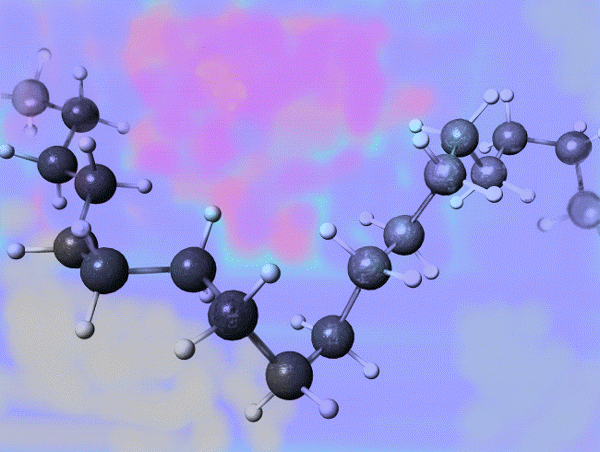|
|
|||||||||||||||||||||||||||
|
Chemical and Process Engineering |
|||||||||||||||||||||||||||
|
|
|||||||||||||||||||||||||||
|
|
|
|
|
|
|
||||||||||||||||||||||
|
Nanjing LDPE
Project |
|||||||||||||||||||||||||||
|
|
|
|
|
|
|
||||||||||||||||||||||
|
Low Density Polyethylene |
|
|
|
Client: Simon-Carves |
|||||||||||||||||||||||
|
|
|
||||||||||||||||||||||||||
|
2003/4 |
Senior Process Engineer |
||||||||||||||||||||||||||
|
|
|
||||||||||||||||||||||||||
|
|
|
||||||||||||||||||||||||||
|
Project
Background |
|||||||||||||||||||||||||||
|
|
|
||||||||||||||||||||||||||
|
SembCorp
Simon-Carves Limited in co-operation with CTCI Corporation of Taiwan were
awarded a contract by BASF-YPC (Yangzi Petro-chemical Company) for the
design, supply and construction of a LDPE (Low Density Poly Ethylene) plant
in Nanjing, Peoples Republic of China. This is the largest LDPE plant to be built in China, with a total capacity of 400,000 tonnes per year. It forms part of an integrated petro-chemical site. |
|||||||||||||||||||||||||||
|
|
|
|
|
|
|
||||||||||||||||||||||
|
|
|
|
|||||||||||||||||||||||||
|
Summary
of Process |
|||||||||||||||||||||||||||
|
|
|||||||||||||||||||||||||||
|
The process (from Basell Polyolefines GmbH) is based on a high pressure tubular reactor. Ethylene, produced at the adjacent petro-chemical complex, is supplied to the plant and compressed using hyper-compressors to a pressure of around 3000 bar. |
|||||||||||||||||||||||||||
|
|
|
|
|
||||||||||||||||||||||||
|
|
|
The compressed Ethylene gas is preheated and
passed through a number of tubular reactors into which organic peroxides are
injected to initiate the reaction. The reactors are double pipe units with
pressurised hot water flowing in the annuli. The polymerisation reaction is
highly exothermal and the energy removed from the reaction is converted in to
steam at various pressures for use within the LDPE plant and elsewhere on
complex. Excess unused ethylene is separated after the reactors and recycled
to the reactor feed system. The polymer melt is mixed with additives in an extruder
to yield the final product. Some ethylene is carried forward through the
extruder and the pellets are degassed with air during intermediate storage
prior to being sent to final product storage. The plant comprises two independent lines, both of
which can produce a variety of polyethylene grades. One line can produce both
homo-polymer and EVA co-polymer whilst the other can only produce the
homo-polymer. Polymer properties are controlled by the initiator, pressure, temperature profile and co-monomer content. |
|||||||||||||||||||||||||
|
|
|
|
|
||||||||||||||||||||||||
|
|
|
|
|||||||||||||||||||||||||
|
Specific
Responsibilities |
|
|
|||||||||||||||||||||||||
|
|
|
|
|||||||||||||||||||||||||
|
|||||||||||||||||||||||||||
|
|
|
|
|
|
|
||||||||||||||||||||||
|
This large
project required the preparation of data sheets for over 2000 instruments. I
was responsible for a significant proportion of these. During their preparation
checks were made as appropriate against the heat and mass balances (for up to
4 operating conditions), P&IDs, Licensor instrument data sheets,
equipment data sheets, pipeline specifications and battery limit conditions.
The instruments includes flow, level, temperature
and pressure. I performed any necessary calculations to ensure correct
specification of these instruments. During my
contract in 2003 I was also responsible for dealing with control valve
queries raised by the instrument department. This required checking data and
performing pressure drop and line sizing calculations for incompressible and
compressible fluids. The compressible fluids that I dealt with included Steam up to 40 barg, Nitrogen up to 300 barg and Ethylene to over 3000 barg. As well as calculation of pressure drops, thermal considerations associated with large changes in pressure were also necessary. |
|
|
|||||||||||||||||||||||||
|
|
|
|
|
|
|
||||||||||||||||||||||
|
|
|
|
|
|
|
||||||||||||||||||||||
|
|
|
Process areas that I
covered included: |
|
|
|
||||||||||||||||||||||
|
|
|
|
|
|
|
||||||||||||||||||||||
|
|
|
|
|||||||||||||||||||||||||
|
|
|||||||||||||||||||||||||||
|
I was re-engaged on the project in 2004 to assist with a range of residual process engineering issues. These included: |
|||||||||||||||||||||||||||
|
|
|
|
|
|
|
||||||||||||||||||||||
|
|
|
|
|||||||||||||||||||||||||
|
|
|
|
|
|
|
||||||||||||||||||||||
|
Achievements |
|
|
|
|
|
||||||||||||||||||||||
|
|
|
|
|
|
|
||||||||||||||||||||||
|
|||||||||||||||||||||||||||
|
|
|
|
|
|
|
||||||||||||||||||||||
|
|
|
|
|
|
|
||||||||||||||||||||||
|
Documents Produced Instrument data sheets for pressure, temperature, flow and level transmitters. Data sheets for pressure regulators. Calculations in support of instrument and pressure regulator
specifications. Calculations for pressure drop, line sizing and control valve size
checks. Specialist Software "InTools" for creating process specifications
for instrumentation. "PDMS Reality Review" for 3D plant layout visualisation. "TASC5" for shell and tube heat exchanger design. |
Hazards Considered Pressures up to 3100 Barg Process temperatures down to minus 50 C Explosive gases and vapours Problems Identified and
Solved Bottle-neck in nitrogen purge system. Extreme low temperature caused by expansion of bottled Nitrogen used
for purging. Over-specification of flowmeters and hence
saving in large bore pipework and fittings. Frost protection requirements. (minus 14 C
ambient). Liaison Other Engineers; Process, Control, Mechanical, Piping. |
||||||||||||||||||||||||||
|
|
|
|
|||||||||||||||||||||||||
|
|
|
|
|
|
|
|
|
|
|
|
|
|
|
|
|||||||||||||

